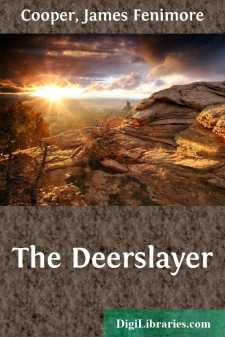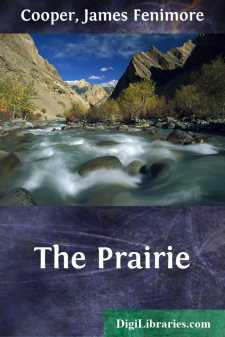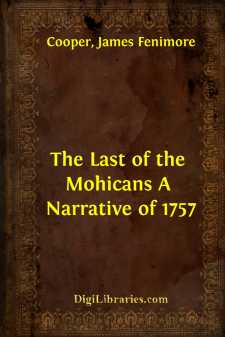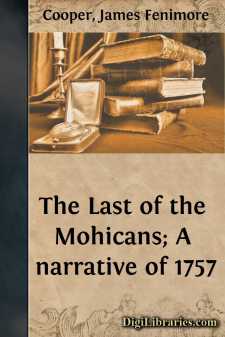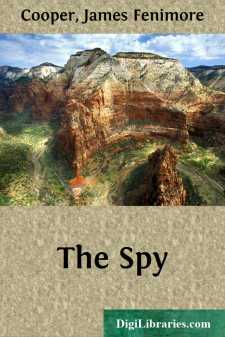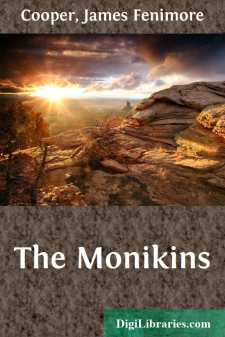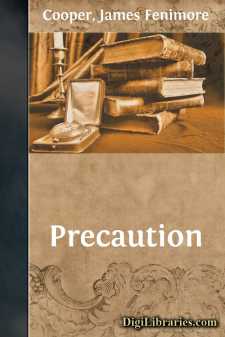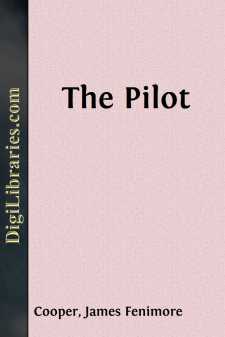Categories
- Antiques & Collectibles 13
- Architecture 36
- Art 48
- Bibles 22
- Biography & Autobiography 815
- Body, Mind & Spirit 144
- Business & Economics 28
- Children's Books 18
- Children's Fiction 14
- Computers 4
- Cooking 94
- Crafts & Hobbies 4
- Drama 346
- Education 58
- Family & Relationships 59
- Fiction 11835
- Games 19
- Gardening 17
- Health & Fitness 34
- History 1378
- House & Home 1
- Humor 147
- Juvenile Fiction 1873
- Juvenile Nonfiction 202
- Language Arts & Disciplines 89
- Law 16
- Literary Collections 686
- Literary Criticism 179
- Mathematics 13
- Medical 41
- Music 40
- Nature 180
- Non-Classifiable 1768
- Performing Arts 7
- Periodicals 1453
- Philosophy 65
- Photography 2
- Poetry 896
- Political Science 203
- Psychology 44
- Reference 154
- Religion 515
- Science 126
- Self-Help 85
- Social Science 83
- Sports & Recreation 34
- Study Aids 3
- Technology & Engineering 60
- Transportation 23
- Travel 463
- True Crime 29
James Fenimore Cooper
James Fenimore Cooper was a 19th-century American writer best known for his historical novels set on the American frontier. His most famous work, "The Last of the Mohicans," is part of the "Leatherstocking Tales" series, which follows the adventures of Natty Bumppo, a resourceful frontiersman. Cooper's writing significantly contributed to the development of American literature, highlighting themes of wilderness, native peoples, and the conflict between civilization and nature.
Author's Books:
Sort by:
Chapter I."There is a pleasure in the pathless woods,There is a rapture on the lonely shore.There is society where none intrudes,By the deep sea, and music in its roar:I love not man the less, but nature more,From these our interviews, in which I stealFrom all I may be, or have been before,To mingle with the universe, and feelWhat I can ne'er express, yet cannot all conceal" Childe Harold....
more...
INTRODUCTION "The Prairie" was the third in order of Fenimore Cooper's Leatherstocking Tales. Its first appearance was in the year 1827. The idea of the story had suggested itself to him, we are told, before he had finished its immediate forerunner, "The Last of the Mohicans." He chose entirely new scenes for it, "resolved to cross the Mississippi and wander over the desolate...
more...
CHAPTER I. The turf shall be my fragrant shrine;My temple, Lord! that arch of thine;My censer's breath the mountain airs,And silent thoughts my only prayers.MOORE The sublimity connected with vastness is familiar to every eye. The most abstruse, the most far-reaching, perhaps the most chastened of the poet's thoughts, crowd on the imagination as he gazes into the depths of the illimitable...
more...
"Mine ear is open, and my heart prepared:The worst is worldly loss thou canst unfold:Say, is my kingdom lost?" Shakespeare. It was a feature peculiar to the colonial wars of North America, that the toils and dangers of the wilderness were to be encountered before the adverse hosts could meet. A wide and apparently an impervious boundary of forests severed the possessions of the hostile...
more...
CHAPTER 1 "Mine ear is open, and my heart prepared:The worst is wordly loss thou canst unfold:—Say, is my kingdom lost?"—Shakespeare It was a feature peculiar to the colonial wars of North America, that the toils and dangers of the wilderness were to be encountered before the adverse hosts could meet. A wide and apparently an impervious boundary of forests severed the possessions of the...
more...
JAMES FENIMORE COOPER "I believe I could write a better story myself!" With these words, since become famous, James Fenimore Cooper laid aside the English novel which he was reading aloud to his wife. A few days later he submitted several pages of manuscript for her approval, and then settled down to the task of making good his boast. In November, 1820, he gave the public a novel in two...
more...
INTRODUCTION. It is not improbable that some of those who read this book, may feel a wish to know in what manner I became possessed of the manuscript. Such a desire is too just and natural to be thwarted, and the tale shall be told as briefly as possible. During the summer of 1828, while travelling among those valleys of Switzerland which lie between the two great ranges of the Alps, and in which both...
more...
W. C. Bryant's Discourse on the Life, Genius, and Writings of James Fenimore Cooper, Delivered at Metropolitan Hall, N.Y., February 25, 1852. It is now somewhat more than a year, since the friends of James Fenimore Cooper, in this city; were planning to give a public dinner to his honor. It was intended as an expression both of the regard they bore him personally, and of the pride they took in the...
more...
PREFACE. * * * * * It is probable a true history of human events would show that a far larger proportion of our acts are the results of sudden impulses and accident, than of that reason of which we so much boast. However true, or false, this opinion may be in more important matters, it is certainly and strictly correct as relates to the conception and execution of this book. The Pilot was published in...
more...
Chapter I. --"But I'll not chide thee;Let shame come when it will, I do not call it;I do not bid the thunder-bearer shoot,Nor tell tales of thee to high-judging Jove;Mend when thou canst--" Lear. It is almost as impossible to describe minutely what occurred on the boat's reaching the Wallingford, as to describe all the terrific incidents of the struggle between Drewett and myself in...
more...


